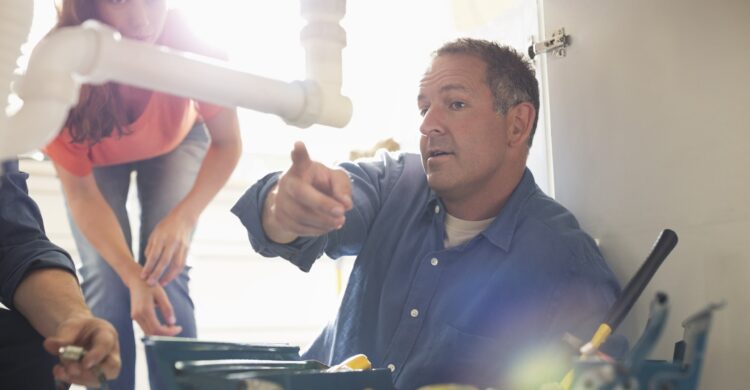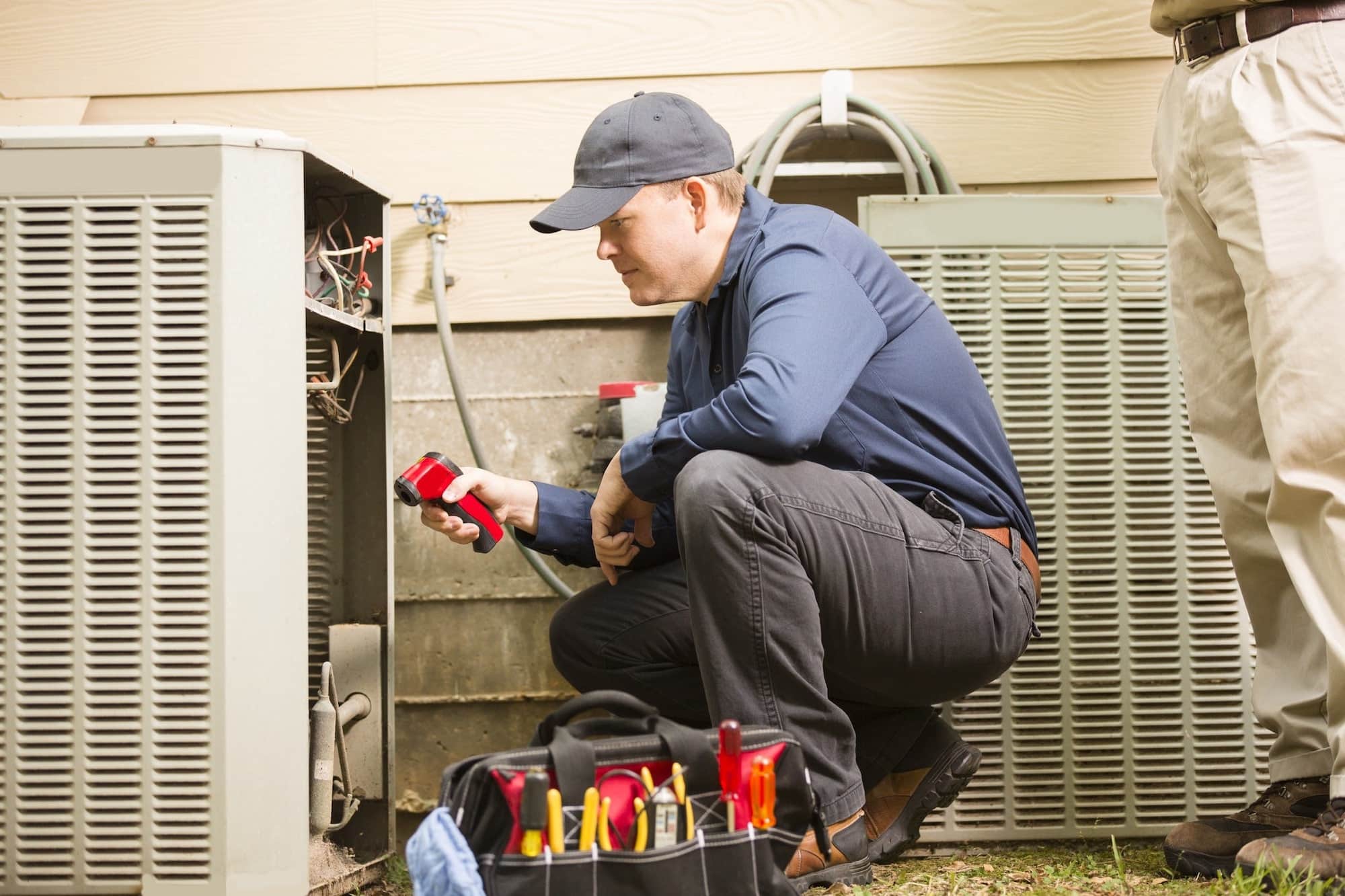
Clogged Pipes
Backed up sinks, tubs, and (worse) toilets can overflow and spill all kinds of gross things onto your surfaces, ruining your morning, day, or even a whole week in the process. Plumbing clogs can also attract bugs. Sometimes this can be a one-time or even recurring problem. And, unless you’re a trained plumber, you are essentially blind to what may be causing the concern and how best to fix it.
The simplest solution is to call in a professional, but that is not always convenient – someone must be home during work hours. And if you get an emergency plumber, you can expect to pay for that convenience and immediacy. Sometimes that cannot be avoided, but there are other instances when you can try a little DIY and create a solution. However, if it is a sewage clog (i.e., your toilet), that cannot be solved with a quick plunger application, you are much better off calling a pro immediately because of the potential for harmful pathogens present in sewage lines.
The good news is that there are other things you can do to help prevent most of these problem in the first place. With that in mind, let’s look at said plumbing issues and learn all about clogged pipes. What you take from this could end up saving you – in time, money, and headaches.
What Causes Clogged Pipes?
This may seem obvious, but you’d be surprised at what can get stuck in various pipes, as well as how certain substances build up in your plumbing over time. However, the most common and main offenders are:
Food
Some people treat their kitchen sinks like a hungry monster, washing all manner of food and cooking-related substances down the drain. And those people with a disposal tend to think that machine can make up for even the toughest foodstuffs. But there’s a reason why plumbers roll their eyes at disposals – as they encourage you to put things down the drain that leads to problems. Heck, even those people who are more conscious of the limits of plumbing can’t help but let a few things go down the drain from time to time.
But you should do your best to avoid:
- Fibrous substances like eggshells
- Grease and oils
Hot grease is especially hazardous, as, when it cools, it will harden and create a stout blockage. Both these items will build up in your piping and create a clog over time.
Hair
Another one that seems obvious, but you’d be surprised just how much hair gets washed down your shower/tub/bathroom sink drains. And the hair that you shed naturally, brush and comb off, and shave off will pile up inside your plumbing. And it will also act as a sort of game of red rover, catching other things that may wash down the drain and binding with them to create a blockage, which leads us to…
Soap
Certain soaps contain fats and greases that will coagulate inside a drain – especially when binding with hair. And even non-fatty soaps can combine with hair and dead skin (gross, yes, but a fact of life) to create a barrier.
Kids toys/wash cloths
Experienced parents may well know the pain of wondering why the bathtub suddenly won’t drain – only to discover that a toy or even a cloth has wedged itself into the plumbing. Many times, this happens so far down the pipe that you only discover the culprit when the plumber dislodges a washcloth that you lost weeks ago.
How do I prevent clogs?
Firstly, you should refrain pouring oils down the sink, as well as eggshells. And never, NEVER, allow nut shells to be washed down the drain (just ask a plumber for a story about boiled peanuts and the damage they can cause!). Your kids or spouse may groan, but make sure they scrape their plates clean into the garbage before rinsing/washing the in the sink.
You can also change your grooming habits to an extent. But there’s always the risk that some food/hair/grease will avert your attention.
The best way to help with that is by placing a guard over your drain to catch hair. You can also use a strainer in your kitchen sink to catch food particles.
There are also simple maintenance steps you can take, including pouring hot water down them on a weekly basis. You can also pour a cup of vinegar down the drain. Let it sit for 30 minutes and then use two quarts of hot water to wash it down. You can also schedule regular service checks with a plumber to avoid any possible blockages.
The problem is that, with many of these issues, there is not much you can do to avert them completely…
So, what happens if and when a clog does form?
DIY clog-busting tricks
If you’re dealing with a clog in your kitchen, bathroom, or work shed sink – or in your tub or shower – you have a few options that may solve the problem. The same goes for a toilet – but, DO NOT too aggressive with a sewage blockage and defer to pros here (more on that later).
A plunger is always handy and can be attempted on any clog. Many people know about them for toilet use, but they can work on other clogs too. Just be sure not to use a toilet plunger on another type of drain unless it has been sterilized. In fact, you may just want to have two plungers – one for toilets and one for other drains. NOTE: When using a plunger DO NOT use a lot of force, because that can cause the clog to shoot up and splatter water (and the clog) everywhere (again, gross). You can use a stronger action once the water has drained, however. And do not get discouraged if a few pumps do not fix the issue; it may take a dozen or so plunges to remove the clog. Also, when plunging a toilet clog, make sure water covers the bell of the plunger.
You can also trek to your local hardware store and buy a plumbing snake to dislodge the blockage or industrial-strength plumbing products designed to dissolve clogs. But chemical drain cleaners can sometimes do more harm than good, corroding pipes and creating leaks (worse than clogs), and there are cheaper and more handy alternatives likely present in your home.
For a non-sewage blockage, the first thing you can try is a sort of homemade plumbing snake. Take a wire coat hanger and straighten as best you can, creating a hook on one end. Stick the hook-end into the drain and start feeling around for resistance. When you’ve felt it, pull at it and see what comes up. When you’ve fished out enough to unclog the drain, pour hot water down the drain.
Another option is to make homemade clog dissolver. To do this, mix 1/3 cup of baking soda and 1/3 cup of vinegar. You’ll remember from your youth that this mixture will fizz like crazy, so be ready to pour it immediately down the drain. Those bubbles are your friend when it comes to dissolving a blockage, and you want them to do their work below. But you need to let them do their job. Let them sit for at least an hour – although you could even leave it overnight – and then flush with boiling hot water.
If none of these options cleans your pipe of the clog then it is probably time to call in a professional. Likewise, it is a good idea to call your plumber if you experience continued issues with a toilet(s), as it could signal a problem with a sewage line. Sewage lines are buried deep underground, are hard to access, and require real know-how in order to work on them.
Contacting a plumber
If you find yourself out of options, time, or are unwilling to attempt some of these homemade remedies, please contact a professional plumber immediately. And if you are in north Georgia or metro Atlanta, know that the professionals at Coinditioned Air Systems are here for you whenever you need us.
We built a sterling reputation on our HVAC work, and now we’re bringing that same approach to plumbing. Led by plumbing master John Payne – founder of Payne Plumbing – we now offer the same full range of expertise, customer service, and flexibility that you have come to expect from Conditioned Air’s HVAC services.
Payne, a north Georgia native, grew up in the plumbing industry and obtained his unrestricted master plumbing license over 25 years ago. He founded Payne Plumbing shortly thereafter. Thanks to John’s guidance, we will happily tackle any job, no matter the size or situation. And you can expect our plumbers to:
- Arrive on time
- Install it or repair it right, the first time
- Give you a fixed price with no hidden surprises
- Be friendly and professional
Just like our HVAC services, we offer 24/7 and emergency plumbing services to attend to your every need.
If you find yourself in a plumbing fix like any of the problems listed above or beyond, please contact us right away at 770-536-7509 and let us get your water running the right way again.
Meeting Your Plumbing Needs

